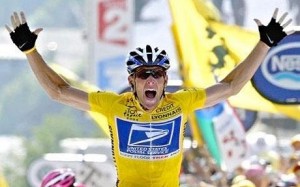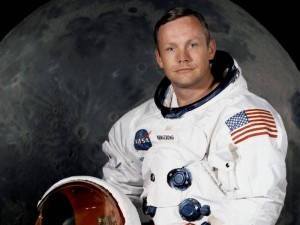Originally, this was a one part editorial, short, sweet, and to the point. Given recent events, it only seems proper to expand on the initial thesis.
On Friday, America was presented with the news that Lance Armstrong would no longer be pursuing his defense against the U.S. Anti-Doping Agency’s allegations that he used performance-enhancing drugs throughout his competitive cycling career. These charges, mostly leveled by accusations, are serious threats in a sport where it sometimes feels as though a new winner takes the stage only to be dethroned when it is revealed that they cheated (see Landis, Floyd).
Now, Lance Armstrong, winner of seven consecutive Tour de France championships, whom we can only picture wearing the yellow jersey given to the leader of the pack, has stopped fighting the claims that he cheated during all of those competitions.
The U.S.A.D.A., in like kind, has decided to strip him of those titles, all of his awards, and banned him from competitive cycling for life. (Never mind that they technically don’t have the power to strip him of the Tour de France titles, something governed by the I.O.C. But that’s besides the point.)
You’ve read all of these things before.
It’s hard for me to distance myself fully from this event. Lance Armstrong was a powerful figure around my home as I was growing up because of his history as a cancer survivor. When one comes back from a 50% chance of not surviving testicular cancer to become the greatest cycler in U.S. history, as well as one of the most respected and most admired athletes living today, that sort of thing tends to happen. I’m sure that I’m not the only kid to grow up sporting a Livestrong bracelet, a symbol of Armstrong’s foundation to support cancer research that to date has raised over $500 million.
Now, Armstrong is refusing to fight against these charges. This action goes against much of his history as a fighter who refused to give up. His training regimen in preparation for the Tour de France is renowned for being among the most grueling programs ever conceived. It’s hard enough to win one Tour de France, let alone multiples. There are few examples of such domination stretching over such an extended period of time.
Sadly, in the day and age of the Steroid Era in baseball, it is telling that looking back at this now, it just feels more and more likely that Armstrong was doping.
It is important to recognize the key word in that statement: “feels”. Much of this case is based upon feeling. Voracious defense has leapt up on both side of this issue: those who feel strongly that Armstrong was cheating, thus depriving all clean athletes in the races of a chance to win; and those who feel strongly that Armstrong was simply the best competitor in the field, was clean, and has done nothing deserving of the villainy that has been thrust upon him.
One of the facts of the matter is that Armstrong continues to claim that of the hundreds of drug tests that he has been given over the years, he has failed none of them. Because of the Tour de France’s sordid history of drug cheats, Armstrong is one of the most tested athletes in the world. Yet, as we’ve seen with baseball, it’s not inconceivable that his cheating could have slipped through the cracks and gone undetected during all of those races. His background as a cancer survivor, in addition, creates a sort of aura around him that makes it hard to believe that he might still be a cheat. (See all of his defenders, and the fact that donations to Livestrong have jumped over the weekend after the U.S.A.D.A.’s statement.) Sure, he might be a surly, hyper-competitive, un-loveable douche of a man, but he never gave up the fight against cancer or in the mountains of France. For seven years and beyond, Lance Armstrong was our hero.
And now we find out that he might not have been honest about the whole thing.
And now he has given up the fight.
Giving up the fight might be a calculated maneuver to generate good will. If this is the case, it might be true. I don’t particularly care for Michael Rosenberg as a person or a sports columnist most of the time, but he might have hit the nail on the head when he says that the average American doesn’t care about the modern Tour de France. (Go ahead. If I stop you on the street, please, tell me the names of the last three Tour winners. I’ll wait.) Chances are that Livestrong will continue to receive donations amounting in the tens of millions of dollars range for years to come. Chances are that no one ever doubts Lance Armstrong at his word again. We’ll still remember him as the winner of seven consecutive Tour de France titles. Until he is proven to be guilty, we must presume that he is innocent. (Thank you, America.)
His status as a hero, however, has now become clouded. He is no longer the unsullied man that he once was, a beacon of human accomplishment against the longest possible odds.
So now, I’d like to turn to the following quote that appeared over the weekend:
“Honor his example of service, accomplishment and honesty.”
That was a statement released by the family of Neil Armstrong, who passed away on Saturday at the age of 82.
Neil lived his life with a quiet dignity, serving in the armed forces during the Korean War, a professor at the University of Cincinnati, and a member of the NASA space program. You might know him as the first man to walk on the moon. Yes, the moon.
Armstrong (Neil) was never tainted by allegations of doping or cheating. (Bogus moon landing theories being just that: bogus.) He was not a loudmouth braggart. He was a scientist, someone who pursued the betterment of mankind. It’s impossible to truly summarize exactly what his accomplishments, along with everyone else working at NASA during those times, meant for the whole race of humanity.
So I won’t. I’ll just say that the Recorder remembers and honors Neil Armstrong’s life, remembering him as a man who exemplified service, accomplishment, and honesty.
Lance Armstrong has exemplified service and accomplishment. For him to have any standing as a hero to millions everywhere, one can only hope that he still, in fact, exemplifies honesty.
We can only hope that he is telling the truth when he says that he did not cheat to win his races. And even if he did, we can still only hope that he remains the hero who defied odds that most of us would never survive. We can only hope that we remember the man who triumphed in the face of adversity, not the man who was finally beaten down by those who wish to destroy our idols for their own personal gain. (See Bissinger, Buzz)
We can only hope.
ADDENDUM:
I also think it’s telling that on a day when a gunman raged outside of the Empire State Building in New York, 19 people were shot on the South Side of Chicago, and violence continued in Afghanistan, Syria, etc., that the headlines on every single major news website were focused on Lance Armstrong dropping his fight.
Tell me that our priorities aren’t misguided. Please. Tell me that.







